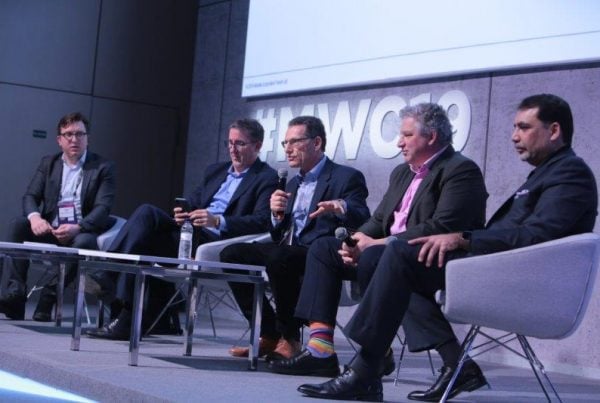Tech hubs around the world share much in common. From Silicon Valley to Mumbai, Berlin to Lagos, you’ll find the same entrepreneurial spirit and can-do attitude. Their culture of Darwinian innovation takes few prisoners and has created problems with regulators and the consumers they serve. However, experts detect change in the air. MEF’s Simon Bates investigates.
The culture of Silicon Valley is often at odds with the principle of building trust. This was one of the key messages from a panel of experts at MEF’s recent Global Consumer Trust Summit. The reason behind the tech sector’s great success – a laser focus on innovation and disruption – can often upset the very people using its services.

Innovation and trust go hand-in-hand in technology – without trust, innovative and inventive technologies will face challenges to adoption. At the same time, trust is very challenging, and we need to be innovative in our approach to promoting it.”
Chris Riley, Mozilla
Moderator Chris Riley of Mozilla reminded delegates of the mantra often heard in San Francisco and other tech hubs around the world: ‘Ask forgiveness, not permission’. This idea of building something as quickly as possible before pausing to take stock of its consequences yields big rewards…and great risk.
When it comes to data, it means prising as much personal information as possible from users. Many of the new generation are inspired by the businesses who made multi-billion dollar fortunes off the back of it. Some are driven by more altruistic motives though: for example, to improve patient outcomes or teach cars to drive themselves so we don’t have accidents.
But it’s also a culture that can lead to an erosion in trust – a side effect not lost on the start-up community itself. Panelist Mike Masnic of the Copia Institute described how he tried to engage entrepreneurs in the debate around Apple and the FBI. They said they had strong opinions about it but were wary of raising awareness of their own poor privacy policies!
Masnic feels that more and more are starting to realise that they need to be more transparent and hand at least a modicum of control back to the individual. Many see this approach as a competitive advantage in an industry full of data hoarders.
In any case, new rules will soon compel all data collectors to empower consumers in this way. Evan Engstrom of start-up champion Engine advises its mentees to picture themselves sitting in a meeting with the government regulator. “If you can’t explain why you are collecting a piece of data, then don’t!”
Engstrom suggests a collective action problem around not putting a strong enough case forward for data collection. Most data is collected for reasons the user would fully appreciate, but explaining those reasons up front will remove future obstacles to engagement.
The best reason for innovating with trust in mind, however, is commercial opportunity. “Success is a three legged stool”, says Doron Rotman of KPMG. “Services must add value, be fully secure and offer privacy. If you can only offer one or two of these your model will not be sustainable in the long term.
Doron also points out that if startups want to do business with big brands and enterprises they had better have a good data story around privacy and security. If you are going to collect information about thousands of employees, for example, reassuring litigation-conscious corporate buyers is the order of the day.
Let’s agree then that privacy and security are an essential part of any digital service. However, retrofitting this kind of functionality is not easy – far better and cheaper to build it in from the start.
Megan Conroy of mHealth pioneer CaptureProof explains that while it may sound easy to build systems and policies to encrypt, house and log data, the reality is far harder.
Senior Advisor, Policy & Initatives
MEF


“That’s mainly because entrepreneurs, when faced with the choice of investing in a security retrofit or an enhanced feature set, will invariably be tempted to choose the future-facing option.”
Experts agree a tipping point is coming, when consumers will make purchasing decisions based, at least on part, on how their data will be stewarded. There is less agreement on when that will be and whether there will be one incident in particular that causes it.
Silicon Valley’s pioneers made hay despite a cavalier approach to consumer data. Many of those following in their footsteps might be tempted to question the need to change. But they’d be forgetting the very essence of innovation: to embrace a different view!





